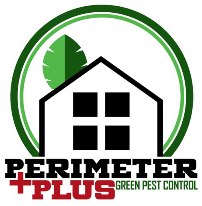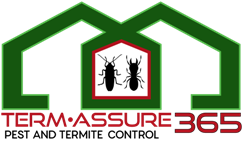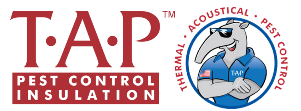Arcadia
From Railroads to Rodeo
Despite its past as one of the most bustling old Florida towns, Arcadia continues to maintain its slower-paced, comfortable lifestyle.
Like much of the Southwest portion of Florida, the first inhabitants of what we now know as Arcadia were native tribes who hunted and fished the area for generations.
In the mid 1800’s, following the culmination of the Third Seminole War, farmers and cattlemen began settling in the region, believing it was now safe enough to bring their wives and children along with them.
The earliest settlement was known as Waldron’s Landing, named for the steamship captain who delivered many of the settlers to their destination along the Peace River. However, during the Civil War, it became commonly known as Tater Hill Bluff on account of a significant potato crop being planted.
Request a "Quick Quote" to schedule a free inspection!
Just provide a few details and we'll get in touch with you right away!
While surveying for a canal in 1881, Captain J. Francis LeBaron, chief engineer of a detachment of the U.S. Army Corps of Engineers, discovered river pebbles high in phosphate – a major component of mineral fertilizer – easily accessible in the Peace River. But little was made of this discovery for several years.
In 1883, the Arcadia Post Office was established on the property. The name allegedly came from Rev. James Madison “Boss” Hendry’s desire to thank a young neighbor girl for baking him a birthday cake.
Around that time, two businessmen from Orlando accidentally discovered high levels of phosphate in the land they were hunting off Charlotte Harbor. The two men concocted a plan where they purchased land from current owners for a small price, warning them that there was ‘tannic acid’ in the saw palmetto bushes. They would then “remove” the tannic acid – really mining the phosphate – and sell the ‘treated’ land back to the original owners.
The Florida Southern Railway arrived in 1886, building a station in the growing community, sandwiched between Punta Gorda & Bartow. The railroad brought hundreds of visitors and new residents to the town, which was formally incorporated 9 months later.
At that time, Arcadia sat within Manatee County. However, growth and homesteading fairly exploded in Southern Florida after the Civil War, and Manatee was split about a year later. The new DeSoto County stretched from Charlotte Harbor to Lake Okeechobee and from Polk County to Lee County.
As it happened, Arcadia sat in the central portion of the DeSoto County, but a city called Pine Level had been the county seat of Manatee County, and its residents believed it should maintain that status in DeSoto County. After extensive debate, many cities vying for the title, and three votes, the final decision went to Arcadia. It helped that the town’s government had promised to build a county government building and courthouse out of their own pocket.
In 1892, Henry Plant gained control of the Florida Southern Railroad, and added it to his extensive Plant System of transportation. It would later become the Atlantic Coastline Railroad (ACL).
By now, phosphate mining and citrus growing were the two major industries in Arcadia. Unfortunately, the Great Freeze of 1894-95 crippled the citrus groves and shortly thereafter, the mining operations petered out as well.
Despite the hardships, Arcadia managed to incorporate as a city in 1901, but just 4 years later, was almost destroyed by a fire on Thanksgiving Day. The lack of central water lines left the fire raging out of control, destroying all but 3 of the community’s burgeoning downtown. Not a single life was lost, but the damages exceeded $250,000.
The city began to slowly rebuild, with the City Council outlawing the building of structures that were not stone or brick. The rebirth was aided in 1907 when the Charlotte Harbor and Northern Railway came into town, adding another means of exporting goods and importing people. Another short railway was constructed in 1913 to connect to Bradenton and try and save the town of Pine Level, but the former county seat would become a ghost town.
When the United States joined the Allies in The War to End All Wars, Arcadia was tapped to be a training ground for fighter plane, aka, pursuit pilots – likely due to the Wright Brothers own past interest in the area. In 1917, Carlstrom Field, a grass airfield of the U.S. Army Air Service named for deceased aviation pioneer Victor Carlstrom opened up, and Arcadia nicknamed itself “Aviation City.”
The airfield would later be taken over by Embry Riddle, and then used again during World War II to train British RAF pilots. The land later became a hospital, and now serves as the Desoto County Juvenile Correctional Complex.
Along with the airfield, the Dixie Highway came through Arcadia. The town was the turning point of the road as it came down from Kissimmee, then streaked across to the East coast of the Sunshine state.
After the First World War, many former service men who had trained at Carlstrom Field in Arcadia, as well as nearby Dorr Field returned to the area to settle. By 1921, DeSoto County had become unmanageable, and the state voted to split it into four additional counties – Charlotte, Hardee, Glades and Highlands Counties. Arcadia remains the County Seat of DeSoto to this day.
On the outskirts of Arcadia proper, cattle ranchers still raised heads of beef for meat, milk, and occasional sport. But in 1928, the local American Legion would help establish the future of Arcadia with a simple building fundraiser – a rodeo.
The Legion post sent out invitations to everyone, including the local Seminoles who had relocated to Big Cypress Swamp several years earlier, the migrant workers in the citrus groves, and even the state Governor (who came). The first annual Arcadia All-Florida Championship Rodeo was a smashing success, and kept the community going and connected during the lean years of the Great Depression.
A good majority of the cattle in Florida that makes it 12th in the country for beef production graze in and around Arcadia. The rodeo, now held 3 times a year, remains one of the biggest events in the area.
In 1984, application was made with the Department of the Interior to add the DeSoto County Courthouse and much of downtown Arcadia to the historical register. The Arcadia Historical District, consisting of more than 370 homes and businesses was approved. In recent years, 4 more private residences within city limits were added in the National Register.
The area is now a popular place to shop for antiques and rare collectibles, with more than 20 stores. And once a month, the district is flooded by more than 100 tents of traveling antique and art sales. It also houses the old train station and the reportedly haunted Opera house.
Arcadia Municipal Airport hosts an annual Aviation Day event in the month of March. The city hosts 6-7 parades every year as well.
Nearly 8000 people now call Arcadia home. The city government and businesses strive to continue the legacy of the rural, small town atmosphere. Life is slower in Arcadia, and that’s how they like it. It’s the type of communities where you not only know your neighbors, you care about them too.
The Industry Leader in Green Pest Solutions
Good News leads the industry in providing 100% all natural, safer and more effective botanically-based eco-superior products for pest control. Products that are guaranteed safe for you, your children and your pets. That, coupled with other products that utilize naturally occurring elements found in nature, allows Good News to provide the same pest-free living guarantee, with no risk to your health.
A recent EPA study suggests that 80% of pesticide exposure occurs indoors and that measurable levels of up to a dozen pesticides have been found in the air inside homes!
Perimeter Plus - Green Pest Control
Our Perimeter Plus green pest control is designed to eliminate and prevent most of the creepy-crawly insect varieties we see in Florida, including ants, roaches, silverfish and, of course, spiders. We schedule 3 visits per year to provide exterior service after the initial set-up.
Your Good News technician will inspect the entire exterior of your property while sweeping cobwebs from the eaves and windows.
Once the source of insects is determined, a proper treatment of the perimeter foundation, entry points, eaves, plant beds and trees will be applied where needed using reduced–risk, green products.
If you are having any pest issues inside, your trained tech will also treat any entry points, kitchen, baths, laundry room, or problem areas using reduced–risk or even pesticide exempt products.
We guarantee your satisfaction and will return (at no charge) in between scheduled visits if you encounter any pests. Please call as soon as you see a problem. The sooner we inspect and treat, the better.
Keeping the Rodents in the Fields
One issue we see with rapidly growing and developing areas, is that rats, mice and other rodents find themselves ‘homeless,’ and decide to move in to your home—even in the most exclusive homes and neighborhoods.
The Good News Premier Rodent Program is the most comprehensive service available. We start by excluding all known entry points and sealing roof vents with proprietary covers. Then, we set several traps in the attic(s) to kill any rodents sealed in.
Next, we install 4-6 of the best bait stations available in hidden locations around the exterior perimeter. These help to keep the outside population of rodents to a minimum. We check the traps twice per week until we are sure there are no more live rodents inside.
Finally, we vacuum droppings and apply a deodorizer, sanitizer, viruscide to the entire attic space.
Many of our customers are finalizing the process by capping their insulation with T·A·P: Thermal Acoustical Pest Control. Once T·A·P™ is installed, the attic looks brand new and acts as a deterrent to re-infestation.
Term-Assure 365 - Termite Protection
Our tropical Florida environment means that the state also has the highest risk for termite problems. Termites do more damage than floods, fires and storms combined, and like those natural disasters, the more you prepare the less you feel the impact.
Termite damage isn’t covered by most homeowners policies, which means the repair costs come out of your pocket.
Good News is the leader in using natural and essential oil alternatives to control both drywood and subterranean termite pests.
Term Assure 365 is the most comprehensive and affordable termite protection in the state. First, we perform a thorough inspection of your home to be sure there is no existing evidence of termite infestation.
Next, we perform our initial Perimeter Plus interior and exterior pest control service and install 6-8 termite monitoring stations around the exterior perimeter of your home.
Then every time one of our skilled technicians visits your house (at least once every 4 months), they check the monitoring stations along with the normal treatment. And we offer a $1 million dollar damage repair warranty for homes that qualify.
If you’re building or buying, we offer Bora-Care®, an organic pre-construction treatment, and Florida-mandated real estate WDO inspections, to insure your new home is free of wood destroying organisms.
Don’t wait, schedule your termite inspection now.
T·A·P: Thermal Acoustical Pest Control
With T·A·P, you not only keep out the bugs, but you can save money on your cooling (and heating) bills! Like all our products, TAP is all natural and safe for your family and pets, but is 32% more energy efficient than fiberglass insulation, while adding a sound barrier and even reducing fire hazard.
Quick Facts About Arcadia:
- Chris Clemons, professional football player for the NFL Miami Dolphins & the Arizona Cardinals graduated from Arcadia High School.
- Retired US Army Major General James L. Dozier was born in Arcadia and still lives nearby.
- George Kenneth End of Arcadia was the first to cook and eat rattlesnake meat, then sell it to others.
- The Queen Anne house was built in 1892 by John Lee Jones, a founding pioneer of Arcadia, and the nephew of General Robert E Lee.
- Our own Morgan Park is 240 acres of Cypress Preserve, one of the largest in Florida.
- Remington’s famous “Cracker Cowboy” painting from 1895 is of Arcadia resident Morgan Bonaparte “Bone” Mizell.
- Arcadia resident Thomas Gaskins invented the automatic railroad car coupler in 1895.
- His son, also Thomas Gaskins, devised Gator Roach Hives, a precursor of the popular “roach motel”
Proudly Serving
Sun City Center, Ruskin, Palmetto, Parrish, Ellenton, Bradenton, Anna Maria, Holmes Beach, Bradenton Beach, Longboat Key, Lakewood Ranch, University Park, Myakka City, Sarasota, Siesta Key, Osprey, Nokomis, Casey Key, Venice, Englewood, North Port, Port Charlotte, Punta Gorda, Arcadia
Things You Can Do
Pay Your Bill Online
Leave Us a Review
Request a Free* Termite Inspection
Stop Mosquito Bites
Get Rid of Rodents
Get a Termite Damage Warranty
Get Pest Control for Your Attic
Get Pest Control for Your Business Request Prayer
Corporate Address
1080 Enterprise Court, Ste A
North Venice, FL 34275
Call Now: (941) 412-9610
Text: (941) 412-9610
Fax: (941) 412-0080





